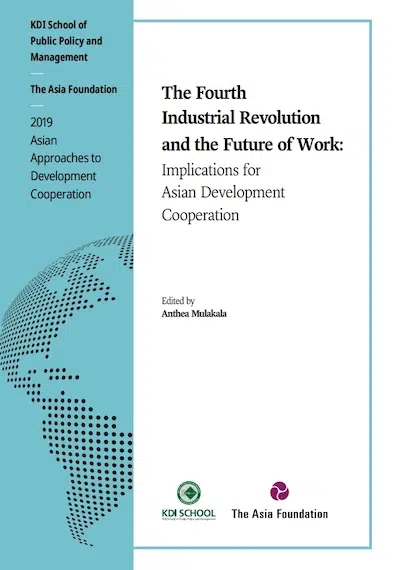The Fourth Industrial Revolution and the Future of Work: Implications for Asian Development Cooperation
Advanced technologies like automation have utterly transformed economies, livelihoods, labor markets, and workplaces throughout Asia. Hundreds of millions of laborers have been lifted out of poverty as new technology applications created new jobs and industries. At the same time, millions were left behind without access to vital technologies and infrastructure, support for up-to-date skills training, equitable social protections or pro-labor regulations.
Within this context of significant opportunity and challenge, South-South, Asian, and triangular development cooperation can play a pivotal role. This volume focuses on the challenges posed to Asian workers and economies by the Fourth Industrial Revolution and the new practices transforming the workplace, workers, and work. The chapters in this volume present expert perspectives from government, civil society, academia, policy bodies, and multilateral agencies on how Asia’s stakeholders can and should navigate the rough waters caused by disruptive change to achieve productive and inclusive work for all in the digital age. Their roadmaps include four fundamental imperatives: provide suitable skills, inclusive support, hard and soft infrastructure, and cross-border cooperation.

